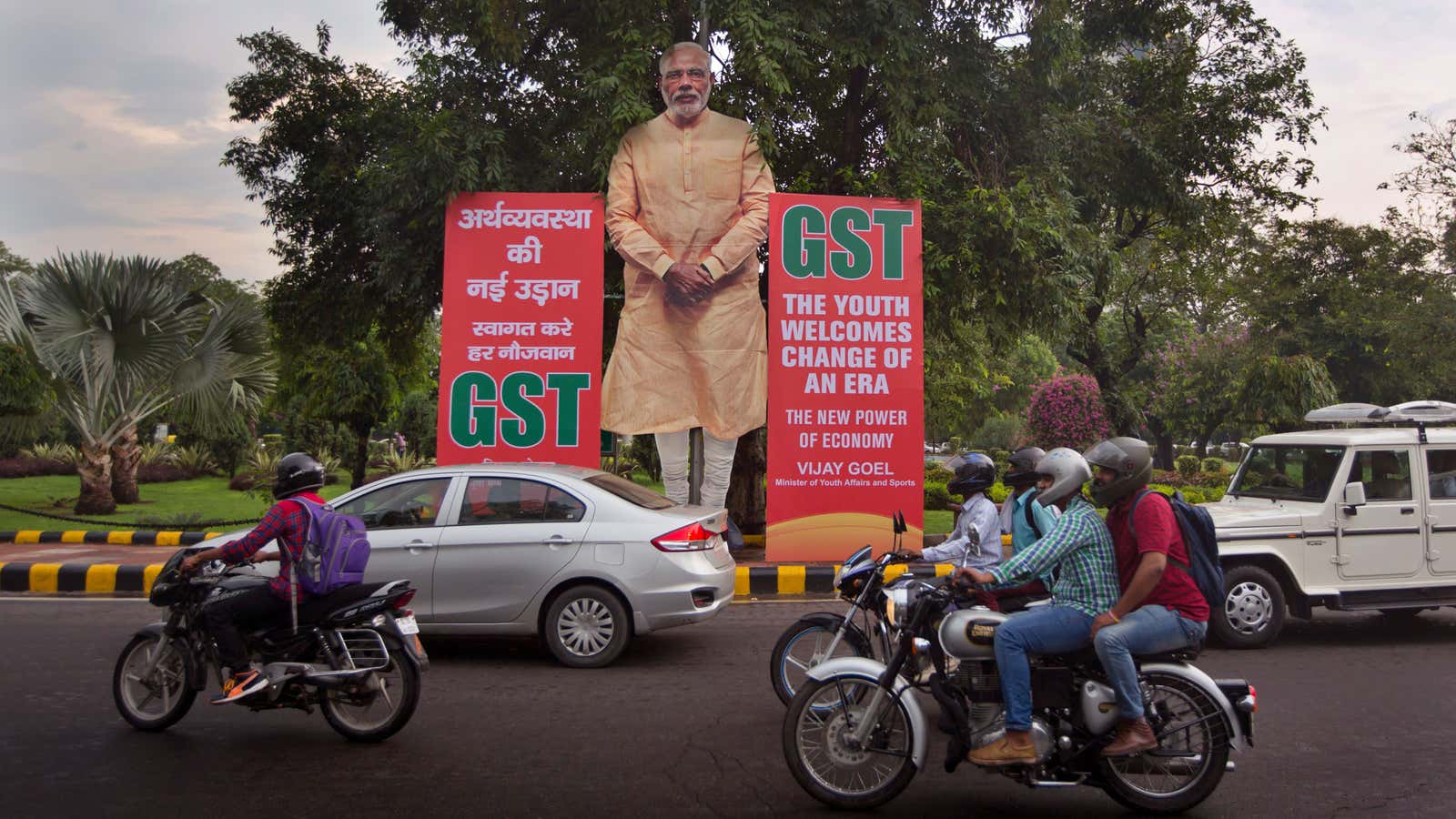When the Narendra Modi government rolled out India’s goods and services tax (GST) last July, the aim was to replace multiple state and federal taxes with one, simple indirect tax system. However, it has turned out to be anything but the “good and simple tax” the authorities touted.
Nine months after the tax system was launched, Indian manufacturers, wholesalers, and retailers are still struggling to make sense of it.
According to a recent survey of these businesses by Wydr, India’s largest mobile-based wholesale marketplace, 57% of the respondents said they don’t fully understand how the GST works—and nearly one in five said they still do not understand the tax policy at all.
A total of 130 businesses across India were surveyed by Wydr about how the GST regime has impacted them.
“The scale of implementation for the GST is unprecedented anywhere in the world, which naturally leads to some challenges and teething trouble in the first few months,” Devesh Rai, founder and CEO of Wydr, said. “…even though significant progress has been made in GST rollout, the administration needs to enhance its focus on educating small and medium business owners across India.”
Businesses say they are hurting
The tax reform shook up everyone, from luxury carmakers and the banarasi sari industry to the Rs100,000 crore wedding industry. And, across the board, the smallest players have faced the biggest hurdles.
About 1.9 million GST registrants in the country are small businesses that contribute little to the government’s cash-box but still face calls for compliance. Wydr’s survey findings are a testament to tough times: Over half the respondents said they experienced a decline in sales and revenues after the introduction of the GST. More than two-thirds recorded a decline in profit. Over a quarter said profits dropped by 30% or above.
Not only has performance suffered under the new regime, the “one nation, one tax” system has racked up costs, too, as nearly 83% reported increased expenses.
Though the GST was meant to put an end to a cascading and complex tax structure, nearly a third of the respondents don’t believe it simplified anything. What’s more, confused retailers and manufacturers don’t know how to seek guidance. Over 55% haven’t been able to get GST-related help easily.
Long-term gains ahead?
Though its implementation hasn’t been smooth, “the government is working towards minimising the issues,” Rai said. “It has not even been a year since the tax system has been implemented and considering the scale of implementation, I think we are much better off.”
Businesses, too, are hopeful, with 45% saying the GST will be good in the long run. Over half also said that they believe the resultant uniformity will make one aspect of business easier—expanding to other states.
